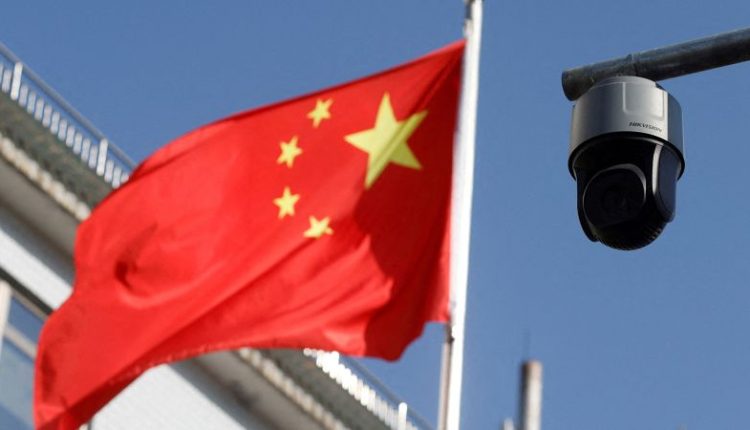Editor’s Note: Sign up for CNN’s Meanwhile in China newsletter which explores what you need to know about the country’s rise and how it impacts the world.
China has formally arrested a Japanese man who was detained in March, according to officials from Japan’s Ministry of Foreign Affairs (MOFA) and the Japanese Embassy in Beijing.
The arrest of the Japanese national, who was reportedly an employee of a Tokyo-based pharmaceutical firm, could further rattle foreign businesses in China, which have reported feeling more unsettled this year amid a crackdown on international consulting firms on national security grounds.
“We have confirmed that the Japanese national in question has been arrested, but we have strongly appealed to the Chinese side for his early release through various levels and opportunities,” Japanese Chief Cabinet Secretary Hirokazu Matsuno said at a press conference Thursday, adding that the man, who is in his 50s, was arrested in mid-October.
According to Japanese public broadcaster NHK, the man was an employee of drugmaker Astellas Pharma and was detained in March by Chinese security authorities in Beijing on suspicion of violating the country’s criminal law and anti-espionage law. He has lived in China for a total of about 20 years, it said.
CNN was not able to independently confirm the information.
Japan’s MOFA has not named the man, released information about his employer, the charges against him or details about where he is being held. The ministry declined to respond to CNN’s request for more information.
An Astellas spokesperson told CNN on Friday that it was in the process of getting more information from MOFA and unable to issue a statement.
When asked about the arrest of a Japanese Astella executive, Chinese Foreign Ministry spokesperson Mao Ning said on Thursday that the Japanese citizen “was suspected of espionage and was subject to criminal compulsory measures taken by the relevant Chinese authorities in accordance with the law.”
In July, China broadened the scope of its already sweeping counter-espionage law in a move that analysts warned could create further legal risks or uncertainty for foreign businesses, as well as journalists and academics.
Weeks later, the Ministry of State Security took the unprecedented step of launching a public account on WeChat, China’s hugely popular social messaging app that boasts more than 1 billion users. In the weeks since, the ministry has used the platform to repeatedly urge the public to stay vigilant and report suspicious activity to authorities.
Foreign companies and investors have grown wary of rising risks, including the possibility of raids and detentions, in the world’s second largest economy.
In July, China fined the Mintz Group, a US corporate due diligence firm, about $1.5 million for allegedly conducting unapproved statistical work in the country. Officials closed the group’s Beijing office in March and detained five of its local employees.
In May, state security authorities said they had raided several offices of Capvision, an advisory network. The announcement came a month after police questioned employees at the Shanghai office of consultancy Bain.
The issue has been cited as headache for foreign businesses, some of which were already having trouble convincing workers to relocate to China.
In a white paper this year, the American Chamber of Commerce in China said 51% of members participating in an annual survey had said that their top expatriate candidates were unwilling to move to the country, up 21% from the previous year.
In the first eight months of this year, foreign direct investment (FDI) into China fell 5.1% from a year ago, according to data from China’s Commerce Ministry.
Direct investment liabilities, a measure of FDI reflected in a country’s balance of payments, fell to just $4.9 billion in the April to June months, according to data published in August by the State Administration of Foreign Exchange. That was the lowest amount in any quarter since records began in 1998.
— CNN’s Michelle Toh and Sophie Jeong in Hong Kong and Mengchen Zhang in Beijing contributed to this report.
Read the full article here

